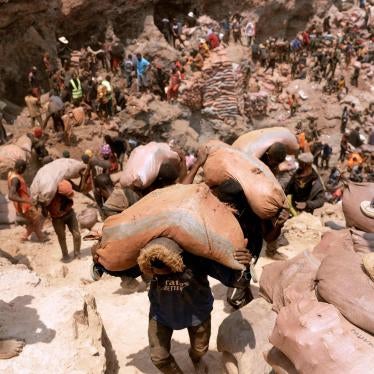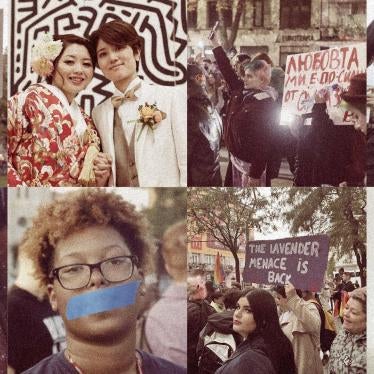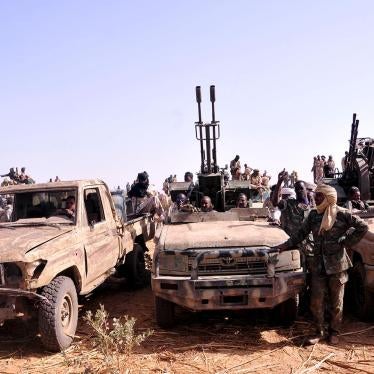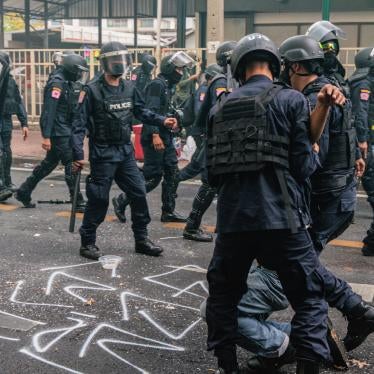Industrialized countries that benefit economically from migration should sign up to a U.N. treaty strengthening legal protection for migrants and their families, Human Rights Watch said today.
The International Convention on the Protection of the Rights of All Migrant Workers and Members of Their Families (MWC) enters into force on July 1, 2003, having been ratified or acceded to by 21 states. The Convention provides a comprehensive framework for the protection of migrants - regardless of their legal status - by transit countries, sending countries, and host countries alike. The Convention now has legal effect for those states that have ratified it, and its implementation will be overseen by an expert committee.
"Fears of terrorism and economic insecurity have prompted a backlash against migrants and other foreigners in many countries," said Rory Mungoven, global advocacy director for Human Rights Watch. "Migrant workers are vulnerable at the best of times, but they now need protection more than ever."
Human Rights Watch warned that many governments, including Australia and Spain, equate efforts to curb illegal immigration with the international campaign against terrorism. In the United States, hundreds of non-citizens of mostly Arab and South Asian descent have been detained, often arbitrarily, by the immigration service as part of the government's investigation into the September 11 attacks. Most have since been deported from the United States after secret immigration hearings, but many suffered lengthy detention under unduly harsh conditions.
The MWC has been ratified or acceded to by Azerbaijan, Belize, Bolivia, Bosnia-Herzegovina, Cape Verde, Colombia, Ecuador, Egypt, El Salvador, Ghana, Guatemala, Guinea, Mexico, Morocco, the Philippines, Senegal, Seychelles, Sri Lanka, Tajikistan, Uganda and Uruguay.
But to date, not one major industrialized country has ratified the MWC, despite the important contribution migrant workers make to their economies. Some developed countries have been reticent about joining the Convention for fear that it may afford too many rights and entitlements to undocumented migrants.
"The Migrant Workers Convention is not soft on illegal immigration," said Mungoven. "All it asks is that undocumented migrants be treated in full compliance with the law, and not subjected to abuse."
Human Rights Watch joined with other non-governmental organizations worldwide in urging states that have not yet done so to become parties to the Migrant Workers Convention as soon as possible.








